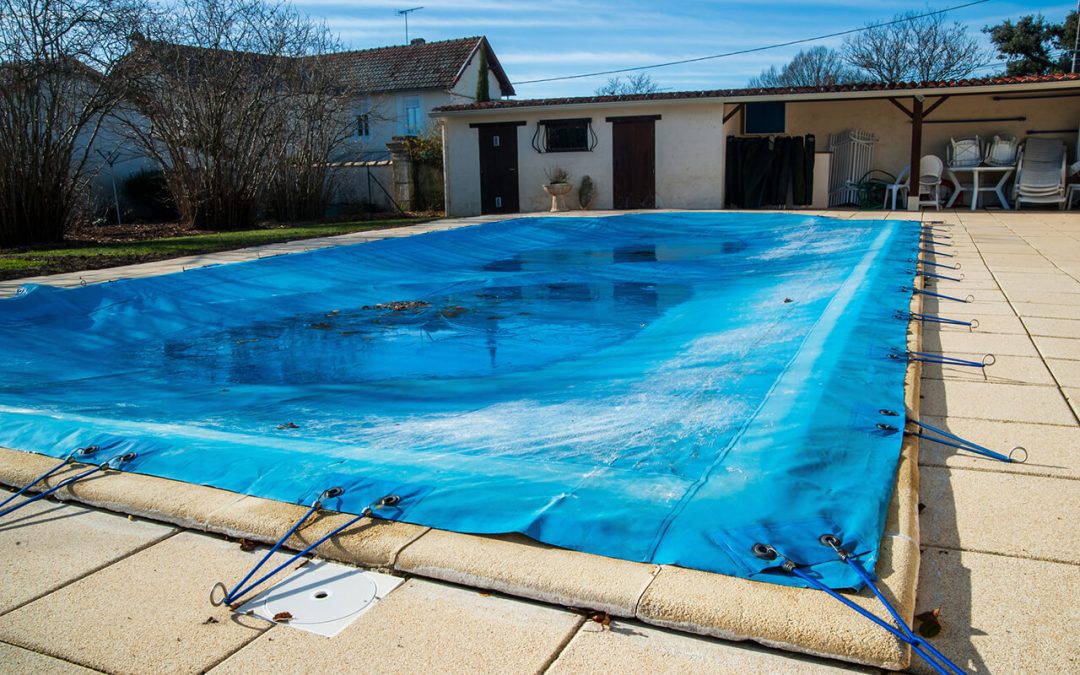With winter around the corner, it’s time to prepare your pool for winter. The best time to close and start your preparations is when the temperature starts to consistently stay below 65 ℉. This is to ensure that algae and other organic matter don’t stay in your pool after you close it. If you can wait even longer for cooler temperatures, the risk of problems decreases.
Make Sure Your Pool is Clean
The first step to preparing your pool for winter is to clean it thoroughly. You don’t want to have to deal with last summer’s gunk when you reopen it. Scrub the pool walls, vacuum the bottom, and skim the surface to get any remaining debris out of the pool. You should also clean any filters, water pumps, and hoses you have attached and make sure the water is fully drained from all components.
Prepare Your Pool for Winter Weather
When closing your pool ahead of colder weather, there are important tasks you must complete. To prepare your pool for winter, lower the water level in the pool to just below the skimmer. This will help protect your pool and allow for expansion if the water freezes. Never drain your pool completely as this can cause serious damage to your pool liner.
Top Off Your Chemicals
Add one last round of chemicals to make sure your pool chemistry is properly balanced. Ideally, the water should be at a slightly higher pH than normal, around 7.8. Since your pool water will sit over winter, the pH will gradually lower during those months.
Starting at a higher pH means you’ll counteract that decrease while your pool is not being used. For this same reason, also raise your pool’s alkalinity to between 150 and 175ppm when you prepare your pool for winter.
Calcium hardness should be between 175 ppm to 225 ppm. When the calcium is too high or low, it can cause damage to the pipes and structure of your pool. About a week before closing your pool, add a shock product to kill any algae and bacteria. By the time you’re ready to close it, the ideal chlorine level for your pool should be between 1 and 3 ppm.
Complete all of these adjustments before closing up your pool so you won’t be making last-minute modifications that draw out the process. When in doubt, stay on the high side of the levels outlined since they will go down over time with your pool inactive and closed. Adding these chemicals to prepare your pool for winter can be as easy as buying a winterizing kit from your local pool store or online.
Winter Pool Storage
Finally, the last step is to clean and store accessories and components that may get harmed by ice or the elements away in a safe place. This includes the skimmer, the pipes, and covering your pool to ensure nothing gets in it. You can also install an inflatable air pillow before you put on the pool cover to help compensate for the weight of snow on the cover and the lower water level.
North Point Home Inspections provides home inspections to Atlanta and the surrounding areas. Contact us to schedule an appointment for our services.

